The study of personality and individual differences is an integral field of analysis in psychology. Every single person is unique in the combination of their personality traits and how they behave individually in social situations. Individual differences are related to mental abilities, vocational interests, religious beliefs, political attitudes, and sexuality. These can be predictors of work, education, and broader life outcomes as well as cognitive ability. Personality psychology is just one aspect of psychological analysis. If we’re to consider both nature and nurture, social psychology is the scientific study of how other people’s thoughts and behaviours, as well as societal norms, and our environment may also have an effect on our own thoughts and behaviours.
Personality has generally been believed to be fairly fixed and stable due to influential psychologist Hans Eysenck’s theory that personality is biologically predicated. However, research carried out in 2019 showed that the more personality-adapting challenges that 400 psychology students carried out over a 15-week study, the more that their personalities changed over the course of the study. Lead researcher Nathan W. Hudson said, “The single largest implication of our study is that actively engaging in behaviours designed to change one’s personality traits does, in fact, predict greater amounts of trait growth across time.” The full text of the paper, “You have to follow through: attaining behavioural change goals predicts volitional personality change”, was published in the Journal of Personality and Social Psychology and can be found on the American Psychological Association (APA) website.
Another study from 2019, mined data from the Project Talent Personality Inventory, containing personality data from more than 400,000 people collected over a 50 year period. The results suggested that while certain elements of personality remain stable over time, others can change and usually in positive ways. Lead study author Rodica Damian said of the study, “On average, everyone becomes more conscientious, more emotionally stable, and more agreeable.”
When thoughts, feelings and behavioural patterns cause problems relating to others, they can be labelled as personality disorders such as narcissism or borderline personality disorder. Certain personality traits such as perfectionism can cause issues in carrying out everyday tasks, which may indicate obsessive compulsive disorder. These are different to affective disorders such as bipolar disorder (formerly known as manic depression), which are considered to be illnesses.
What is the PEN model?
In the study of personality, Hans Eysenck was a pioneer. He is not without his critics and despite fleeing Nazi Germany in the 1940s, he studied under the controversial educational psychologist and geneticist, Sir Cyril Burt. Eysenck’s goal was to integrate psychophysiology, cognitive psychology, behaviour genetics, aesthetics, and psychometrics into a unified theory of personality and individual differences. Influenced by Sir Francis Galton’s seven personality factors and Raymond Cattell’s Sixteen Personality Factor Questionnaire, Eysenck developed the PEN model which stands for Psychoticism, Extraversion, and Neuroticism. These three super factors deduced through factor analysis were seen as the key metrics in understanding someone’s personality. They did not however, take into account variability, simply offering binary traits:
- Extraversion–Introversion
- Neuroticism–Emotional stability
- Psychotocism–Normality
Eysenck was scathing in regard to psychoanalysis, which he claimed was unscientific. He was an advocate for behavioural therapy and can be credited with establishing clinical psychology in the United Kingdom. Concerned with robust methodology, he designed numerous personality questionnaires and tests, the most well-known being the Eysenck Personality Inventory. He was also founding editor of the peer-reviewed journal Personality and Individual Differences, now published by Elsevier. Although his contribution to the development of our understanding of personality traits cannot be discounted, in 2019, an enquiry on behalf of King’s College found areas of his research to be “incompatible with modern clinical science”. In 2020, fourteen of his papers were retracted and 64 statements were issued by journals expressing concern about publications by him.
What is the Big Five?
The Big Five refers to the most commonly used model to assess personality in academic psychology. The five basic dimensions of personality traits are:
- Openness
- Conscientiousness
- Extraversion
- Agreeableness
- Neuroticism
Sometimes the Big Five is referred to as the five-factor model (FFM) of personality. The five trait dimensions can be remembered by the acronym OCEAN. It differs from Eysenck’s model of personality and those of its predecessors because it looks at each trait as being on a continuum – thereby offering variability – rather than exclusively offering the polar opposites of the traits as aspects of personality. Despite offering this variability, some traits can be specifically linked to serious personality disorders, like psychopathy, which will often display as lack of empathy, irresponsibility, and untruthfulness.
During the pandemic, there has been a lot of debate around personality type and its influence on successfully working remotely. The research points to two personality traits – extraversion and conscientiousness – which predict decreasing performance and lower wellbeing over time. This offers interesting findings and implications for one-size-fits-all work policies in the wake of the pandemic.
What is MBTI?
A popular personality assessment is the Myers-Briggs Type Indicator (MBTI) created by Isabel Myers-Briggs with influence from her mother, Katherine Cook Briggs. Frequently used in organisations to help colleagues understand their personality differences and how each other likes to work, it has been criticised by some in the field of psychology for its adherence to type theory and lack of psychometric support. It has also been noted that a personality inventory such as MBTI should have good test-retest reliability, but those who retake the test have found that they can get varying results.
Derived from Carl Jung’s theory of psychological types, some research has shown that four out of five of the MBTI indices correlate with those of the five-factor model of personality. Jung himself warned against categorisation of individuals, writing in Psychologische Typen, “I am unsystematic very much by intention. We need a different language for every patient.” It seems he was aware of the limitations of his theory, so it would perhaps amuse him to know that his thoughts have been popularised as a quiz.
ADHD: neurological disorder or neurodiversity?
ADHD (attention deficit hyperactivity disorder) is a much misunderstood neurological disorder. It is particularly difficult to recognise in women, as they may have camouflaged any inattentiveness and can be high functioning, high achievers who publicly display a level of self-control. However, the emotional turmoil that lies beneath the surface can cause anxiety and depression, which is then diagnosed without understanding the broader neurodivergence at its root.
Although inattentive symptom representation as outlined by the Diagnostic and Statistical Manual of Mental Disorders (DSM-5) includes the following points, they can be easily missed in a female who is adept at masking them:
- Failing to give close attention to details or making careless mistakes in activities
- Trouble holding attention on tasks
- Not following through on instructions and failing to finish duties by losing focus or getting side-tracked
- Trouble organising tasks and activities
- Getting easily distracted
- Forgetfulness in daily activities
Assessments written specifically to help women in later life recognise what could be characteristic behaviour of ADHD include more specifically worded questions like:
- Do you feel overwhelmed in stores, at the office, or at parties? Is it impossible for you to shut out sounds and distractions that don’t bother others?
- Is time, money, paper, or “stuff” dominating your life and hampering your ability to achieve your goals?
- Do you often shut down in the middle of the day, feeling assaulted? Do requests for “one more thing” put you over the top emotionally?
- Are you spending most of your time coping, looking for things, catching up, or covering up? Do you avoid people because of this?
ADHD can also be linked to rejection sensitive dysphoria (RSD) and oppositional defiant disorder (ODD) which express themselves as a lack of emotion regulation. Our understanding of ADHD is evolving as it is no longer seen as merely a hyperactivity disorder largely found in young boys, and our understanding of the biochemical processes at play is deepening.
Mastering psychology
The study of personality and individual differences is just one facet of a psychology master’s that could help you progress or change your career. A master’s in psychology is a valuable degree that can support you on a fulfilling career path, whether your interest is in psychoanalysis, sports psychology, or the psychology of organisations. Wherever life takes you, an insight into the human mind will give you an advantage.
The University of Sunderland has a part-time, 100% online MSc Psychology, which you can study around your current commitments and gain skills that will increase your opportunities for career progression.






